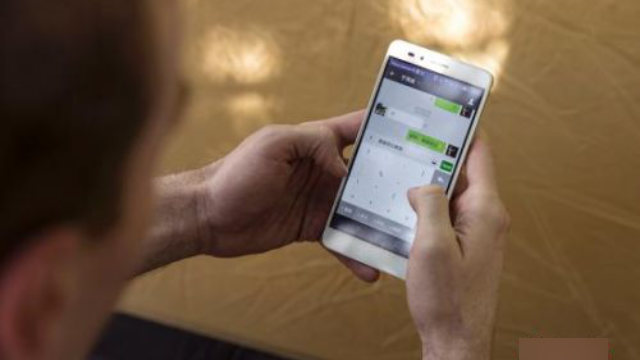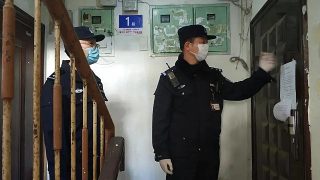The Chinese government is using WeChat, a popular multi-purpose social media and messaging app, for mass surveillance, including to monitor people of faith.
by Wan Zixin

In July 2019, the police took away the director of a Three-Self church in the eastern province of Zhejiang for joining a WeChat group of the Bo’ai Church—one of the 30 churches with ties to abroad in China listed for elimination. Because the church originates from the United States, the director was warned not to join any social media groups created by churches from the US because of “China’s bad relationship with this country.” She was also forced to write a statement promising only to attend gatherings in approved churches, leave and never join again Christian WeChat groups affiliated with foreign countries.
After the United Front Work Department (UFWD) and the Ministry of Public Security adopted the Work Plan of the Special Operation to Investigate and Deal with Overseas Christian Infiltration According to Law in 2019, social media accounts of churches with ties to abroad have been targeted for investigation. Subsequently, many Christians were arrested for joining WeChat groups of Bo’ai and other churches, even if they were not members of these places of worship.
“WeChat has become extremely unsafe, and we’ve been trying new communication tools,” said a member of a house church in Zhejiang’s Taizhou city that was closed last year. A local Public Security Bureau officer told her that the venue was marked for closure because the congregation discussed church affairs in their WeChat group, and authorities tracked them down.
In early December, the police raided a house church venue in Qingdao city in the eastern province of Shandong, arresting its preacher and believers who were present at the time. Using the preacher’s WeChat account, the police summoned the rest of the congregation.
In late February, three unexpected guests joined a WeChat group of a Three-Self church in Shenyang, the capital of the northeastern province of Liaoning: the secretary of the local government CCP committee, a local UFWD commissioner, and a public security officer.
“We contact each other on WeChat as meetings are impossible amid the coronavirus epidemic,” the director of a Three-Self church in Shenyang city told Bitter Winter. “But government officials also started joining various churches’ WeChat groups one after another, monitoring what believers talk about. People of faith have to be extremely cautious. We do not dare to post anything sensitive or remarks that might cause conflicts with the government. If our WeChat group is banned, we’ll lose the only way to contact each other.”
In March, the Religious Affairs Bureau in a locality of Liaoning Province issued an order, allowing only officially-approved religious groups and venues to open accounts on WeChat. One account is permitted per organization or place of worship and is limited to those who attend meetings and have registered their personal information. Applications for a WeChat group have to be submitted to the religious affairs authorities at all levels, and activities online can start when all of them approve the requests. All un-approved accounts were ordered to be dissolved. Group administrators who refused to do so were threatened to be punished.
In late January, a Three-Self church pastor from the central province of Henan reposted an article on WeChat about demolished churches, arrested preachers, and distorted Christian teachings in China. The pastor’s church was forcibly closed down shortly before the coronavirus outbreak, and he commented in the post that with religious persecutions, the CCP is provoking God. He called on all churches to pray for China. Soon after, the article was removed, and the Religious Affairs Bureau reprimanded the pastor.
“Officials asserted that the article’s remarks were political,” a preacher from the church said. “We don’t dare to re-post it for fear of implicating the congregation even more.”
Source: Bitter Winter



